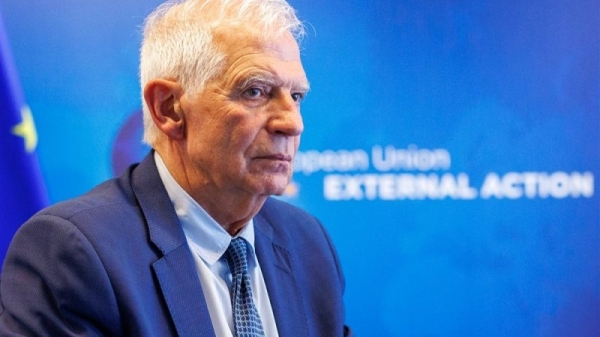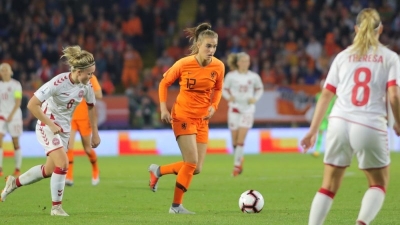Borrell asks for €3.5 billion boost to EU fund used for Ukraine military aid

European Union foreign policy chief Josep Borrell has proposed adding 3.5 billion euros to a fund used to finance military aid for Ukraine, EU sources said on Wednesday (17 May).
The sources, speaking on condition of anonymity, said Borrell had asked EU governments to raise the financial ceiling on the European Peace Facility (EPF), a fund that has already allocated some 4.6 billion euros in military aid for Ukraine.
“He’s just made the proposal,” a European diplomat said.
Borrell’s proposal requires approval from the EU’s national governments. They agreed last December that, “in case of need”, such an increase could be justified.
The fund, established in 2021, was conceived for the EU to help developing countries buy military equipment. But the 27-member union quickly decided to use it also to get weapons to Ukraine after Russia’s invasion in February last year.
The fund is separate from the EU’s budget, which is not allowed to finance military operations.
But the fact that EU countries clubbed together to buy weapons and ammunition for a country at war with Russia marked a historic step for the bloc, which for decades avoided involvement in defence and military matters.
The war has meant that the EPF has burned through cash far more quickly than planned. It originally had a budget of 5 billion euros, meant to last until 2027. That ceiling has already been raised once, by 2 billion euros, last December.
The fund allows EU countries that supply weapons and ammunition to Ukraine to claim back a portion of the cost. EU countries contribute to the fund according to the size of their economies.
A senior EU official said Borrell had decided to ask for a boost as the fund was running low and the EU’s foreign policy service wanted to be sure the EPF had enough cash to finance military aid for other countries as well as Ukraine.
“We have to top up,” said the official. “The gist of the European Peace Facility … has a universal character. It was not conceived by Ukraine. It was conceived for any conflict that the European Union could deal with.”
Hungary names condition to release EPF tranche
Hungary will block the next tranche of EU support under the EPF for Ukraine and any new sanctions package against Russia unless Kyiv removes Hungarian bank OTP from its list of war sponsors, its foreign minister said on Wednesday.
“We can’t give it a green light as long as OTP remains blacklisted,” said Hungarian Foreign Minister Peter Szijjarto. “The same goes for sanctions as well.”
Hungary this week held up a proposal to allocate a further 500 million euros from an EU-run fund, the European Peace Facility, to military aid for Ukraine.

Hungary’s blocked EU funds: MEPs concerned over ongoing rule of law issues
Hungary needs to fulfil all conditions required to unblock EU funds as soon as possible to ensure they reach citizens and businesses, EU lawmakers from the budgetary control committee said, as rule of law problems persist.
This would allow EU governments to submit new claims to be reimbursed for weapons and ammunition they have donated to Kyiv.
In justifying the move, Hungary demanded guarantees that other regions, such as the Balkans or North Africa, would also get money from the fund.
But EU diplomats in Brussels said that, behind closed doors, Hungary had made clear the main reason for its blockade was Ukraine’s blacklisting of the OTP bank.
EU officials said they were working to resolve the issue, including trying to ascertain whether Kyiv had blacklisted the entire bank or just its Russian branch.
Some diplomats expressed frustration at Hungary’s move, arguing the two issues should not be linked and noting that other EU companies were also on Kyiv’s blacklist.
“We’ll talk to the Ukrainians and we’ll talk to the (EU) member states, including Hungary,” a senior EU official said on condition of anonymity.
Hungary, which is member of the EU and also NATO, has refused to provide any military equipment to its neighbour Ukraine, and has also repeatedly criticised EU sanctions against Russia, but eventually supported all the agreed measures so far.
Read more with EURACTIV




